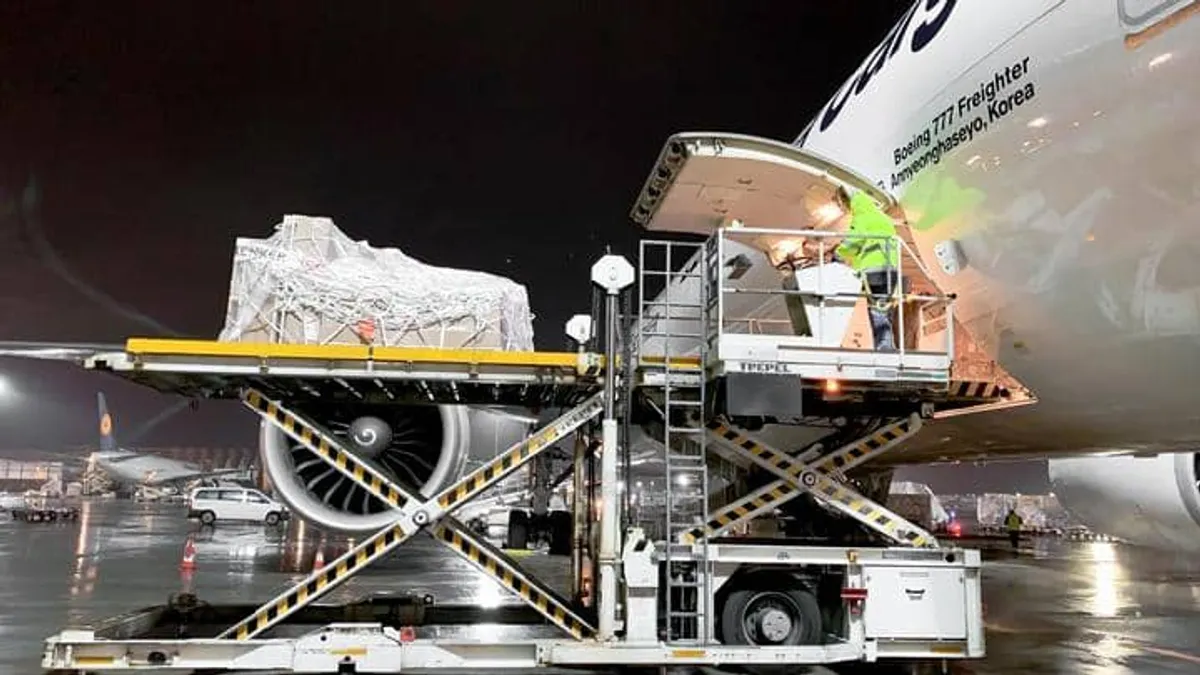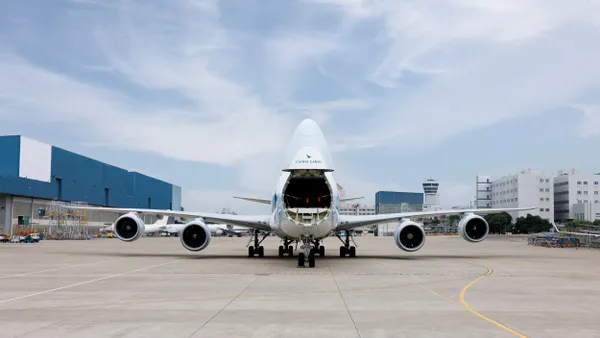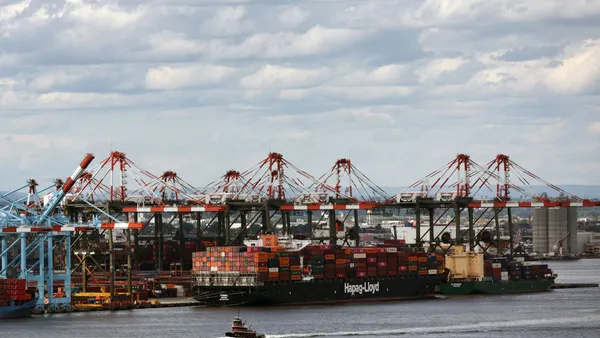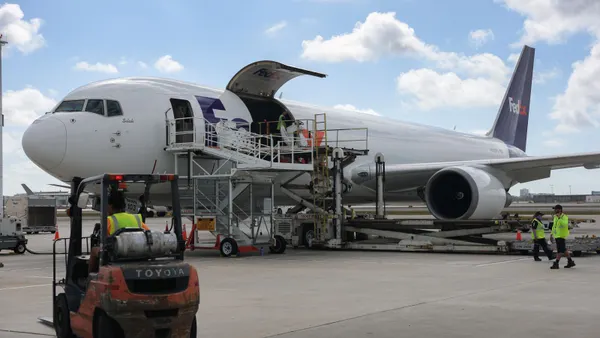Some auto suppliers are turning to air freight as manufacturers aim to catch up on production and suppliers scramble to quickly ship inventory following the United Auto Workers strikes, according to industry experts.
“Given most manufacturers supply parts as they are needed, a sudden interruption will ultimately cause a huge backlog of vehicle delivery,” Pierre Van Der Stichele, VP of the global freight division for Air Partner, told Supply Chain Dive in an email. “The impact on air cargo is significant because air freight is a cyclical industry and only solid advanced planning can guarantee aircraft capacity once manufacturing resumes.”
Specifically looking at manufacturers in Mexico, strike activity paired with recent cross-border congestion has led many to utilize air freight to avoid delays, Matt Castle, VP of global forwarding at C.H. Robinson, told Supply Chain Dive in an email.
In some cases, the forwarder has secured charter flights in just a few hours to keep inventory moving.
“For some suppliers of manufacturers with strike activity, we have even pivoted from truck to ocean to keep inventory moving as the just-in-time nature of the industry means warehouse space is limited,” Castle said. “Air will also be a major player once the strike ends.”
Although the air market remains muted compared to previous peak season periods, Van Der Stichele advised companies to have a plan in place to ensure timely deliveries. This is especially important as aircraft capacity is typically reduced during peak season and “whatever remains available comes at a premium cost, sometimes 200% above a normal price for a cargo flight.”
“In most cases during strikes, production stops and there the multimodal delivery of parts is interrupted,” he said. “There is a natural surge in spare parts that are urgently required once the production starts again. When this occurs, it's increasingly more difficult to offer the capacity needed.”
Automotive parts are traditionally shipped via ocean or truck out of Mexico or Asia, but nearshoring activity paired with delays at major ports have encouraged shippers to consider air options due to speed and reliability, according to Castle.
“I think [automotive manufacturers] have collectively learned that while air may cost more initially, the potential savings from avoiding delays and inventory shortages make it a worthwhile investment and key element of any contingency planning,” he said.
Regardless, while some suppliers and OEMs may be using air freight solutions, it’s only temporary until inventories stabilize, according to Doug Mehl, partner and Americas lead of automotive and industrials at Kearney.
“There are thousands of parts that need to come together for the vehicle build so synchronizing the suppliers to all ramp up together is a major challenge,” he said in an email. “The OEMs have been communicating in detail with suppliers along the way but there will inevitably be hiccups along the way.”















